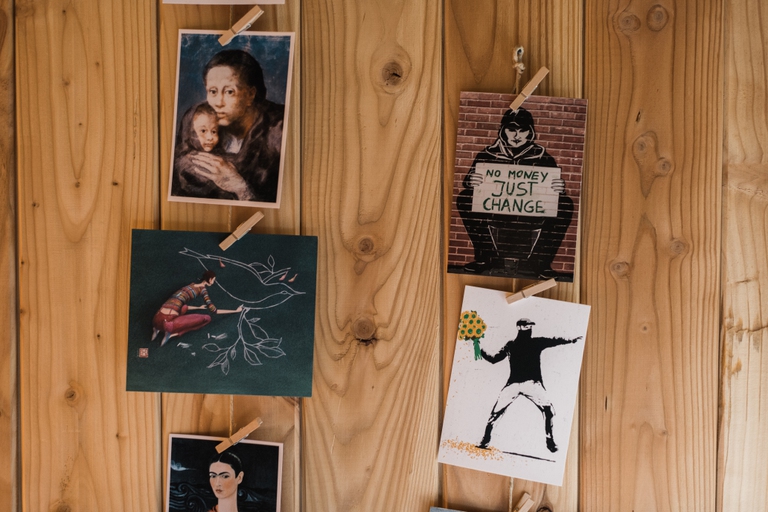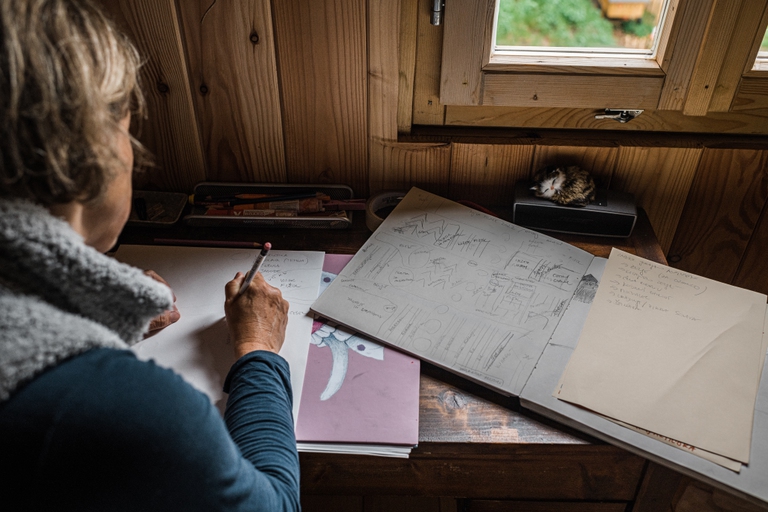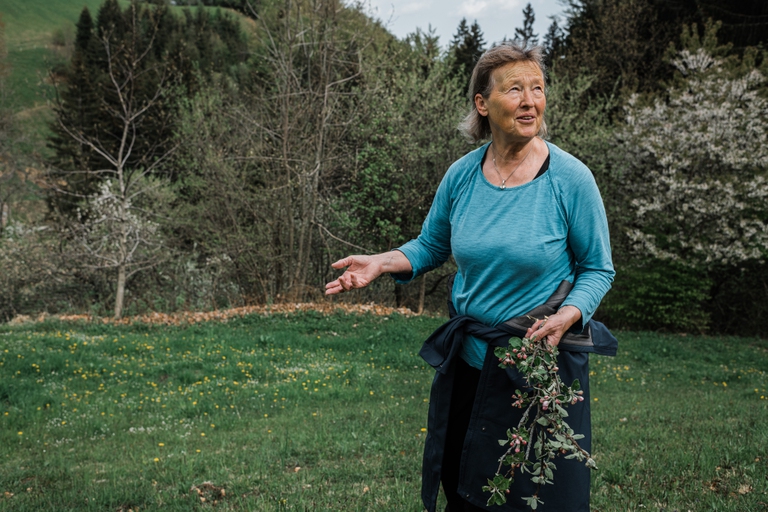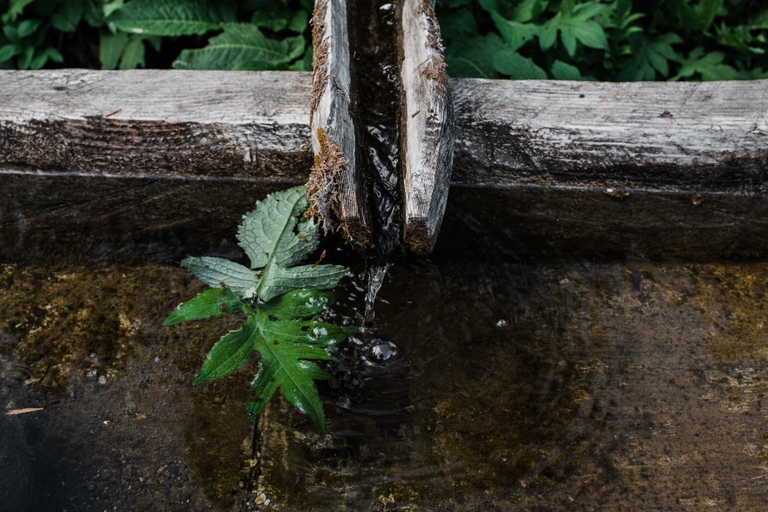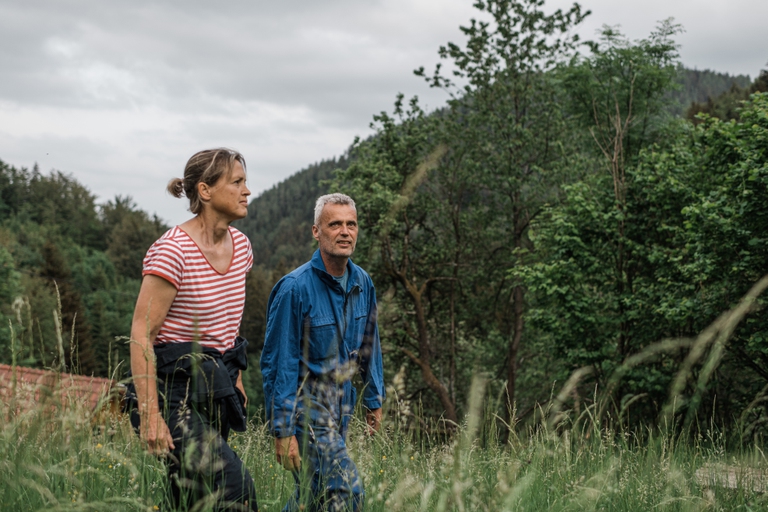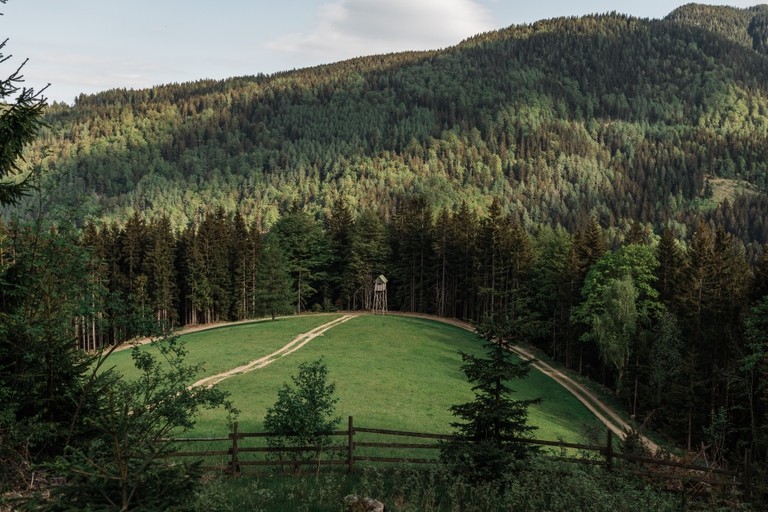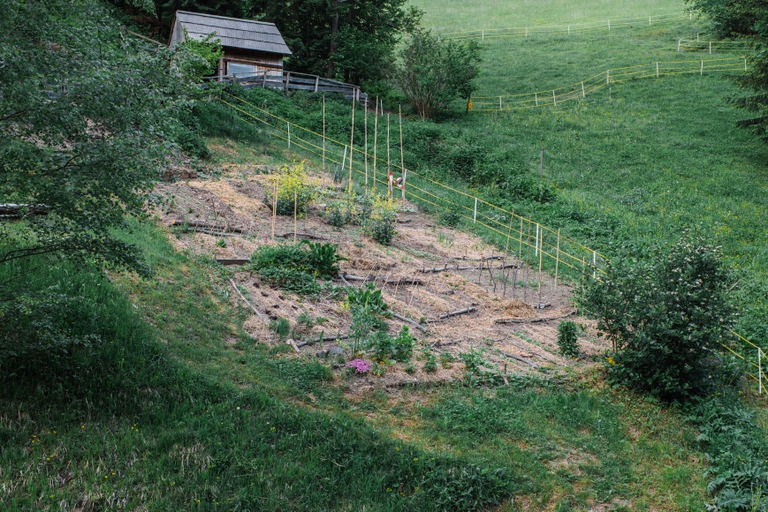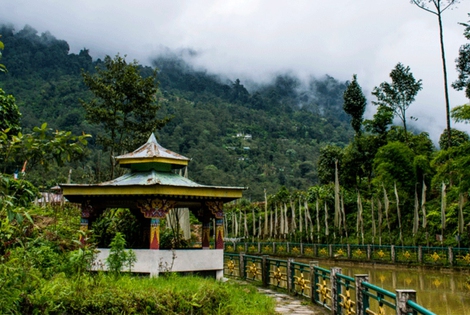
Sikkim is a hilly State in north-east India. Surrounded by villages that attracts outsiders thanks to its soothing calmness and natural beauty.
In 2020, Mihela Hladin made a radical decision that many, in recent times, have probably considered. This is her story, with photos by Matt Audiffret.
Just over three years ago, my husband and I packed our belongings into storage, got into an old van, and drove from the Netherlands to my homeland, Slovenia. For years, we experienced a mix of emotions concerning the state of the world, due to the many crises humanity faces. We were fed up with a lifestyle that provided financial returns but, in our hearts, we knew made little sense and didn’t bring the change that the world needs.
In 2020, Covid lockdowns confined us to the small family homestead tucked into the foothills of an ancient volcano. Here, we started to learn what it really means to live with less. To live close to nature, grow our own food, and learn to fix and run most things ourselves. Every day has been different. Every season brought us new insights. Initially, every chore was a challenge. But every seed put in the ground made us feel more connected to the land. The learning curve has been steep but we’ve kept experimenting, learning from the failures and successes along the way.
It was a cold October day in Amsterdam in 2019. The alarm woke us up at 4:30 am. We rushed onto our bikes to join up with Extinction Rebellion at the Rijksmuseum. There were police, horses, blue lights, riot wagons, and hundreds of people singing climate and social justice songs while blocking the road. It went on all day long. Sitting, singing, chatting and waiting to see whether or not the police would get to our row, arrest us, and drag us away. We were corporate rebels at that time, cosy in our warm outdoor clothes, protected by our company in case something went wrong.
That day gave me lots of time to think. What are we doing? Why are we sitting here asking a government for more progressive policies whilst we are living a lifestyle that supports ecological destruction? I knew so much about environmental issues. I hoped that things would change and yet, I was silently reluctant to embrace that change. But on this day the seed of discontent I had inside me – that I was part of the problem – started to germinate.
My seedling of doubt kept growing over the following months until, one day, I knew the time had come. I walked into the office and quit my job. Of course, there was a bit of panic about what to do next. But I was in good company, as some other colleagues who had also been at the Rijksmuseum roadblock shared my doubts and made the same decision. We left our jobs and then the city where we had spent the last couple of years. We were on our own – going back home.
On 1 July 2020, I woke up in a small village close to Amsterdam, in the caravan my husband Robert and I used to escape the city. I looked out the window. My little garden was in full growth, the local heron was standing still on the edge of a shallow canal, and geese were making their screamy noises on the other side. Summer was here. The water had a sugary scent and the fields around smelled of fertilizer, which was usual for that time of the year.
I felt empty. I felt I had once again given so much of myself to something I believed would change our trajectory. And yet, I had to admit that the systemic changes our world needs would not come from the direct correctives I had been working on.
In December of that year, we drove to my home in Slovenia to celebrate Christmas with my family, like we do every year. Over two years have passed, and we are still here.
Initially, it was Covid-19 that caused us to extend our stay. But more time passed and we didn’t move back from my parent’s farm in the mountains. We had no definite plan for our next move. I studied permaculture and threw myself into learning all about natural cultivation methods, and my husband wrote a book.
We worked outdoors a lot alongside my family and for most of the year avoided having a conversation about what would come next. My mom gave me a piece of land where I started setting up a garden, ten times bigger than the one I had back in the Netherlands. Robert spent a lot of time with my stepdad, learning how to work with wood. We both needed to learn a lot of things about the maintenance of a farm, its facilities and how to use tools we had never used before.
The two of us had, for years, spent most of our day in front of a computer, so the transition wasn’t always easy. It was actually very frustrating because we were both used to being good at our previous work, and here we started as total beginners. We had stopped doing what we were good at, and now what? How do we learn, where do we go for advice, how do we feel good enough about ourselves to keep the motivation to go on?
We progressed with a certain degree of clumsiness, learning how to live in a place where you can’t call a service number and expect someone to show up and help when something goes wrong. We learned to go and fix things ourselves.
Previously, I had a very romantic view of what working on the land is like. Adapting to the practical, imperfect hands-on reality of doing this day-to-day was challenging. During a task, you always see ten other things that need to be done. The everyday scheduling and organising of the work are so different from those in an office, where they happen almost automatically thanks to all the modern task and time management tools. This type of planning took only a bit of time every week and didn’t require much effort.
Oh, how things have changed. Being back home, working with my hands, I still often feel lost in this specific dynamic. Some days, I feel bewildered by how I keep failing to do what needs to be done – at least what, in my head, I think should be done. It can be very frustrating when you plan your day and then someone has a different idea of what is important to do. Or when you walk all the way up to the field and realize you have forgotten something that you need. Or when the tool you want to use for a task is suddenly not working. Or when the tractor doesn’t start. Or when there is a small flood in the kitchen and you have no idea where the water is coming from, and you have to fix it because up here it takes a week to get a plumber to come.
The beauty of this pace of life is that we no longer think in terms of our usual time. We wake up when our animals are up. We know the working day starts when the church bells on a neighbouring hill ring at 7am. Then we get caught up in our work until the bells go at noon for the second time, signalling that it’s time to cook and eat. When they ring for the third time, it’s time to call it a day. The sun has dipped below the hills, the time has come to sit outside the kitchen and rest.
There is also the physical aspect of the work. I can’t do 10-12 full hours outdoors as I used to, sitting in front of a computer and in meetings. It’s funny how this aspect of working never entered my mind when we moved over. I was so deeply programmed to be busy that I threw myself into the work here with the same attitude I had in the office. It came as a surprise that I actually could not finish my entire to-do list because my hands felt like noodles and I almost fell asleep eating while eating lunch.
When Robert and I started to live here on the farm, we would have our usual quarrels about who should do what to keep up with chores. At first, most of the outdoor chores were simply nice to do, and kind of optional because we hadn’t decided whether we would stay or not. Last winter, when our heads shifted in the direction of staying, the number of chores on the list that we didn’t necessarily know how to do piled up. All of a sudden we were working together almost all day long; we had to adjust our ways of thinking a whole lot – even though we’ve been married for six years! – and it felt like we were arguing a lot of the time.
There is no magic solution to this. We had to swim in the muddy waters to get enough clarity and decide that we needed to change the way we plan our work and the way we communicate about it. We started to openly discuss our possibilities of staying either here or buying land somewhere else. At least one thing became clear: Our life in the city, our plane-hopping lifestyle was no longer what we wanted.
I quietly started to notice how the natural world changes through the seasons, feeling the shifts in my own energy and allowing these changes to adjust the pace of my daily chores. I tended to the land, planting seeds and observing, often surprised by the outcomes and always adjusting the little knowledge I had when I started. In less than two growing seasons I started to reap the rewards of working with natural systems to grow food.
During my morning walks, I watched how the nearby forests were being torn apart by new roads for wood transport. I watched how a beech forest was being cut to make space for spruce, which is a more viable option for commercial logging. I tried to avoid the meadows that are soaked in fertilizer so hay can be cut 5-6 times a year. I admired old fruit trees and noticed that no one is planting them in the meadows anymore. I was shaken to see how much danger farmers are exposed to when taking logs out of the forest and how little compensation they receive for it.
While I was trying to get some clarity in my head regarding our future here, something else was growing inside me. A strange calmness and acceptance that we, as humans, have gone way too far. It’s strange that this knowledge only struck me here because for decades I have known the statistics, I have read the Intergovernmental Panel on Climate Change (IPCC) reports, I know the research on planetary boundaries, and yet, somehow I now feel very differently about it. It’s almost as if, in my city life, I was escaping reality with my work on change. As if I took every little campaign win as a sign that in the end good will prevail over ‘evil’. We will be okay.
Here, on the land, among the forests and fields, I have come to truly realize that what we are doing is not reversible. That there is no single solution to this wider net of problems we have created. There is no concrete way to really change the whole system in which we live.
My feeling is not of desperation or sadness; it’s actually a relief, similar to when you realize that you are no longer in love with someone.
So here I am, no longer in love with system change.
I always liked learning by doing more than learning from theory. Robert and I have very little fear of trying new things. Don’t get me wrong, I have fears, but the drive of experiencing what is beyond fear is far stronger.
An important lesson we both learned in our lives before ‘landing’ on the farm was that transitions don’t have only one question and are not concerned with only one answer. It’s not just about location. It’s not just about how to earn income. It’s not just about who will live closer or further from their own family.
It’s about hundreds of thoughts and question marks that don’t fit on a page or a spreadsheet. It takes time for decisions to feel right, and before that happens, some painful times wandering in the dark are required. Trusting that you will eventually know what to do, without setting a deadline, takes tolerance, time and patience.
What we do know now is how empowering it is to have the land. Not just for growing, but for experimenting with new ways of living. Owning even a small parcel of land, as we do now, gives us the freedom to break the rules and weave traditions into new patterns that will support all life. And to create possibilities of seeding these patterns into our surroundings to multiply and grow. Just like nature does.
In these times – it feels like the right thing to do.
So, we have decided to stay in Slovenia. We will build our new home in the midst of the forests, in a couple of hectares of abandoned fields, away from city comforts and yet closer to what we feel is right. We don’t know everything about how we are going to do this, but we now finally know what to do with our feet, what direction to move them in, and on what soil they should rest.
Siamo anche su WhatsApp. Segui il canale ufficiale LifeGate per restare aggiornata, aggiornato sulle ultime notizie e sulle nostre attività.
![]()
Quest'opera è distribuita con Licenza Creative Commons Attribuzione - Non commerciale - Non opere derivate 4.0 Internazionale.
Sikkim is a hilly State in north-east India. Surrounded by villages that attracts outsiders thanks to its soothing calmness and natural beauty.
Vulture populations in southern Asia experienced a 99% collapse and for a long time nobody knew why. Then, a historic discovery saved them.
Through stories of encounters between humans and animals, Our Wild Calling offers a way out of an age of solitude. We speak to author Richard Louv.
The European Parliament has voted in favour of the European Citizens’ Initiative My Voice, My Choice, calling for safe and accessible abortion across Europe. The next step now lies with the European Commission, which is expected to develop concrete measures.
The 10 best books about the environment, to change your perspective on the world around us and on our role in the global ecosystem.
The scene isn’t post-apocalyptic as one might expect. Fukushima, now, seems like any other place – underpopulated but ordinary. In 2016 we visited the prefecture on the northeastern coast of Japan, over 200 kilometres north of the capital Tokyo, to talk to those who are committed to getting their lives back on track after the earthquake, tsunami
The 26th of April 1986 is still an indelible date in the minds of millions of people around the world. The explosion that destroyed reactor number four at the Chernobyl Nuclear Power Plant in the former Soviet Union changed people’s perception of nuclear power forever, making them question its safety. Controversy regarding the death toll
Is there something worse than a nuclear disaster? Probably not, at least in the collective imagination. We immediately think about the Chernobyl and Fukushima disasters, two events that allowed to directly assess the long-term effects of a nuclear accident. It’s not breaking news that wildlife started repopulating the Chernobyl Exclusion Zone (CEZ) and the surrounding forest. Ten-year studies carried
Lo sostiene un nuovo studio secondo il quale i governi mondiali non riescono a fornire la necessaria protezione alla natura.
